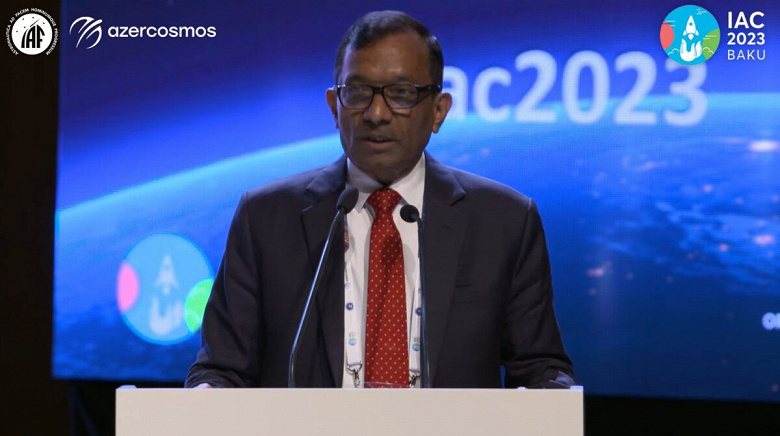The Indian government is pursuing reforms to attract private players and global investment in the space sector. The country’s new space policy simplifies the rules for private participation and foreign direct investment
The Indian government is continuing a series of reforms to increase private participation in the space sector and attract global capital.
“We are moving from ISRO being the only player in the country’s space sector to one where the private sector will play a larger role,” said Pawan Goenka, chairman of the Indian National Space Promotion Authorization Center (IN-SPACe), at the 74th m International Astronautical Congress in Baku on October 5.
The Indian government approved the “Indian Space Policy 2023” in April this year, which is the result of a series of developments in recent years.
“India’s space policy has brought together everything related to space – satellite communications, remote sensing, space operations, transportation, navigation, everything – in one document of just 12 pages,” Goenka said.

India wants to become a leader in satellite manufacturing.
The reforms define clear roles for the Indian Space Research Organization (ISRO), IN-SPACe, and NewSpace India Limited (NSIL), and remove barriers to participation by non-governmental organizations. ISRO will function as a civilian space agency focusing on research and development of advanced space technologies and areas involving international missions, while IN-SPACe will regulate and authorize space activities in the country, develop start-ups, and facilitate collaboration with ISRO.
The policy removes almost all restrictions for the private sector to participate in the space sector in India, which was previously almost inaccessible. The construction of rockets, their launch, the ownership and operation of satellites, the provision of services, and the acquisition and distribution of remote sensing data have become an open market.
Additionally, India is set to finalize a new foreign direct investment policy in the space sector. The move is expected to liberalize foreign ownership rules to attract global investment. This will mainly affect areas such as satellite production, ground segments, and launch vehicles.
“Currently, the Indian space economy is around $8 billion, which is just 2% of the global space economy,” says Goenka. However, according to him, the country is striving to increase this figure several times.
There are several aspects in which India can have a competitive advantage. The first is manufacturing, India could become a manufacturing hub for small satellites
Goenka also said the country could become “pretty big in small launch vehicles” and in low-Earth orbit satellite launches, and noted ground stations and remote sensing data as other areas of potential growth. He listed several advantages that could support India’s position in these areas: new institutional support, state-level policies, a large domestic market, a large number of graduates in science, technology, and mathematics, and competitive labor costs.
According to him, this will increase India’s share in the global space economy.



